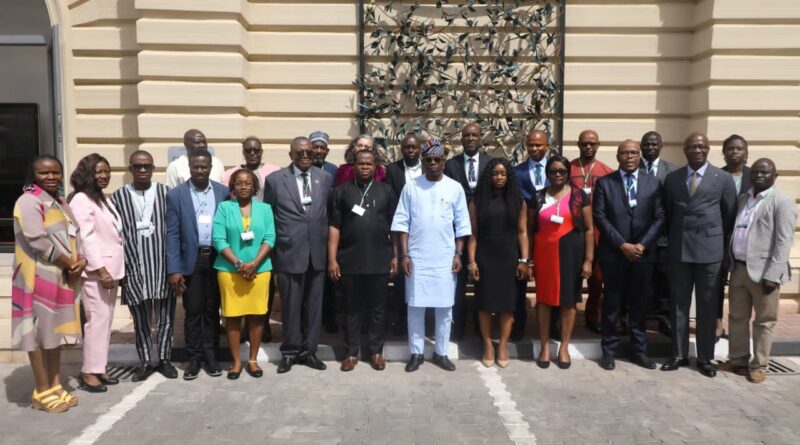To tackle the planet’s biodiversity and climate crisis, Nigeria and ECOWAS member nations are urging the international community to respond ambitiously.
Dr. Iziaq Adekunle Salako, the Minister of State for Environment, conveyed this message during the ECOWAS Marine Biodiversity of Areas Beyond National Jurisdiction (BBNJ) Coordination meeting in Abuja.
Dr. Salako highlighted the escalating threats to oceans, emphasizing issues such as sea level rise, temperature increases, acidification, pollution, biodiversity loss, unsustainable exploitation of marine resources, depletion of fish stocks, the near disappearance of coral reefs, and the destruction of fragile ecosystems.
“The appeal for an Ambitious Global Response to the Biodiversity Crisis is urgent and focused.
“Through the urgent appeal, we had identified several measures as essential, including the global designation of 30% of land and oceans areas as protected by 2030, the conclusion of a robust new high-seas treaty, the establishment of highly and fully protected areas covering 30% of the global ocean which prohibit environmentally damaging activities, and a global commitment towards immediately halting human-induced extinction of wild species, among others.”
According to him, only 7% of the world’s oceans are protected, and there are no comprehensive legal mechanisms in place to protect the high seas and the deep seabed areas, the shared international areas of oceans that lie beyond national jurisdictions and that include almost 70% of the global ocean.
“We are proud that through Nigeria’s rallying efforts, the 55 member States of the African Union have reached a consensus to support ratifying at the earliest feasible date.
He however, states that meeting provides a pathway to support ECOWAS countries in reaching this important goal. Prompt ratification of the high-seas treaty and effective engagement in its implementation is an urgent priority for the preservation of our oceans.
“We have a shared responsibility to act and protect the oceans because we all share in the benefits provided by our oceans and because we all share in the harm that comes when degraded coastal and marine ecosystems threaten the physical, economic, food security of local communities, and multinational businesses,” he stressed.
Dr. Salako emphasized that neglecting the protection of our oceans could lead to catastrophic consequences. Failing to take action would have profound impacts on people.
Recognizing the urgency to address this threat, Nigeria and its fellow ECOWAS member nations have joined forces, urging the international community to adopt a more ambitious response.

